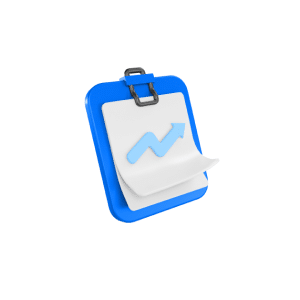- Credit Score
- Free Credit Monitoring
Free credit monitoring
We monitor your credit and notify you about important changes. 100% free.
By clicking on the button above, you agree to the Credit Sesame Terms of Use and Privacy Policy.
Why is monitoring your credit important?

Safeguard your credit
Credit monitoring helps you identify the factors impacting your score. Get notified as soon as negative marks appear on your your credit report, so you can take steps to address them.

Protect your identity

Support your finances
Credit monitoring can help you save money if you are thinking about applying for credit. Addressing negative marks or errors on your credit report can make it easier to qualify and get a lower rate.
Is monitoring your credit really free?
Did we mention it’s 100% free?

What do we monitor for?
Several things are taken into consideration when determining your credit score. Know which ones can help bring your score up or down.
Credit Score Decrease
There are five areas that make up your credit score, and several events that can affect each of those five factors. Anything from a missed payment to closing an account can cause your credit score to drop. A decrease in your credit score should be viewed as a signal to take a closer look. The drop could be because of your actions, fraudulent activity, or an error in your credit reporting. In any case, you should find out what happened and see what you can do about it.
Credit Score Increase
Just as there are many things that can hurt your credit score, there are also many reasons your score may rise. It pays to be aware of good news as well as bad. If you are taking steps to improve your credit score, you want to know that they are paying off. If you are waiting for the right time to apply for new credit, a notification of a credit score increase might also be your cue.
Card Over Limit
Credit is the ability and agreement to borrow money with a commitment to repay later. You might need credit to purchase a service or product, like a car or a house, that you can’t pay for immediately.
Your credit score is a measure of how reliably you manage and repay money you have borrowed. It’s based on multiple factors like payment history, type of credit accounts and length of credit history, and reflects your credit risk to lenders. You have several credit scores you can check from the top three credit bureaus—Equifax, Experian and TransUnion—and these credit bureaus compile your credit report. A higher credit score means you have shown responsible credit history and gives you more borrowing power at lower interest rates.
More...
Closed Account
People often make the mistake of thinking closing an account is good for their credit score. It is more likely to hurt your score, even if it closed because you paid off a loan. It can hurt your score for a variety of reasons. It may reduce the total amount of credit you have available, change your mix of credit between loan and line of credit accounts and/or reduce the age of your credit accounts. In any case, you should know when this happens. It is possible an account was closed without your knowledge simply because it was inactive for a while.
New Account
Each new credit account you open is likely to appear on your credit record, and can affect your credit score. It is likely that you are already aware of any new accounts in your name, but it is good to be notified just in case.This can alert you to any fraudulent new accounts that have been opened in your name. It is important to close these accounts as soon as possible, and take necessary steps to protect your credit score.
New Authorized User
An authorized user is someone with permission to use one of your credit accounts. This can be a convenience as when a couple shares a credit card. It can also be a way to help someone like a child who is coming of age start to build a credit record. However, fraudulently getting signed on as an authorized user is also a way criminals may get access to your account. It pays to be alerted as soon as anyone is granted access to one of your credit accounts.
New Address
When you move, your new address should be reflected on your credit report. It is a good idea to check that the new address has been recorded accurately. If you have not moved, a reported address change may be an indication that someone is trying to fraudulently gain access to your accounts.
New Employer
Lenders like to see that a potential borrower is employed, but they also want to see stable work history. That means reporting any changes to your employment on your credit report is important. Being notified of these changes can help you make sure that everything is accurate and up-to-date.
Paid Collection
When unpaid bills have been referred to a collection agency, this information is recorded on your credit report. This can severely impact your credit score. When you pay off a collection account, you should look to see that this resolution of the amount owed shows up on your report.The sooner the account is marked as resolved, the sooner it will eventually drop off your credit report.
Account Charge-off
If a creditor gives up on trying to get you to pay a bill, they will do what’s called an account charge-off. For accounting purposes, that i’s an amount owed that the business no longer expects to receive. Failure to pay a bill in this way is considered a very negative mark on your credit report. It is important to be aware when an account charge-off appears on your record. If there is any misunderstanding or inaccuracy involved in how the charge-off is reflected, it’s important to get that corrected.

Get more than credit monitoring

Update your credit score daily
Your credit score can change. See your most up-to-date TransUnion credit score with daily refreshes.

See your credit report summary
Your credit report summary helps track your open accounts, debts, and other important factors that are impacting your credit score.

Find better financial products
Your credit score can impact the credit products and interest rates available to you. We help you browse your best matches.
See your score and
start monitoring your credit
Secure

Shiva
Free

Charles
Helpful

Brian

The word on Credit Sesame
Rewarding

Torrey
Necessary

T-wanna
Savings

Latoya
Free

Charles
Fast

Randi
Free

Charles
Fast

Randi
Easy

Shiva
Helpful

Brian
Secure

Amanda
Secure

Amanda
Fast

Randi
Easy

Shiva
Secure

Shiva
As featured in
Security you can trust
Security you
can trust

We always treat your data as
if it were our own

We protect your
data with 256-bit encryption

We do not sell your personal
info to third parties
Got questions? We have answers.
What is Credit Monitoring?
Credit monitoring tracks changes in your credit report and score. When a change occurs, you receive an alert. You can then review the information, confirm its accuracy and take action if necessary. Credit monitoring keeps you up to date with changes to your existing accounts and new accounts.
For example, if you’re interested in buying a home and you receive a notification that your credit score increased, you may now be in a position to secure pre-approval for a mortgage. If you are notified about a missed payment you can take action to ensure this does not happen again. An increase in your credit limit may mean your credit utilization has decreased, a positive sign for your credit score.
If you receive an alert that a new credit card account appeared on your credit but you don’t remember opening one, you can proceed to notify the creditor of potential fraud.
Other alerts include changes to your address and new public records, judgments and tax liens. Credit monitoring puts you in control of your credit identity and heads off unpleasant surprises relating to your credit.
Why is credit monitoring important?
Credit monitoring is a great tool for anyone who wants to improve their credit standing and financial health in general because you can watch your progress as your score improves, change course when your score drops, and make strategic credit moves to help you reach your goals.
A good credit score opens doors to credit products. With a good credit score, you are more likely to be approved for a car loan, mortgage, personal loan or a credit card. Creditors use your credit score to determine your eligibility to borrow and how much interest you have to pay. A low score makes it difficult to secure credit and drives up costs and interest.
By monitoring your credit and taking the right action to improve your credit, you can avoid obstacles that could stand in the way of your ability to borrow in the future.
Can Credit Monitoring help prevent identity theft?
No tool can pinpoint identity theft 100% of the time. Credit monitoring, however, alerts you to inconsistencies and anomalies quickly so you can take action and prevent or mitigate the damage caused by fraud or errors. The best way to protect your credit is to know and understand your credit profile. For example, if you receive notification that you have applied for a loan and you know you have not done this, you can take action immediately to prevent the application proceeding. If a creditor reports a late payment on an account you don’t recognize, you can take steps to ensure it is not recorded as a penalty against you. Credit monitoring does not alert you to all types of financial fraud, but it can help you spot signs of identity theft on your credit report.
Which credit bureau does Credit Sesame monitor?
Your free Credit Sesame account sends notifications based on information in your TransUnion credit report. Our premium credit monitoring service tracks your information on credit reports issued by all 3 major credit bureaus, Equifax, Experian and TransUnion. Platinum Protection membership monitors your Social Security number, public records and the use of your personal information on black market websites.
What is not covered by credit monitoring?
Free credit monitoring alerts you to activity on your credit reports. It cannot cannot alert you to fraudulent activity on your bank account or attempts to use your social security number to file tax returns. Remember that your credit report contains information relating only to your applications, use and repayment of credit.
How are credit monitoring alerts delivered?
You can opt to receive credit monitoring alerts through your Credit Sesame account, text message, email or via our app, so you can benefit from credit monitoring on the go.
Does credit monitoring impact my credit score?
Credit monitoring has no impact on your credit score. Your credit score is affected by hard inquiries. When you access your own credit report, it is regarded as a soft inquiry. Soft inquiries do not influence your credit score at all.

















